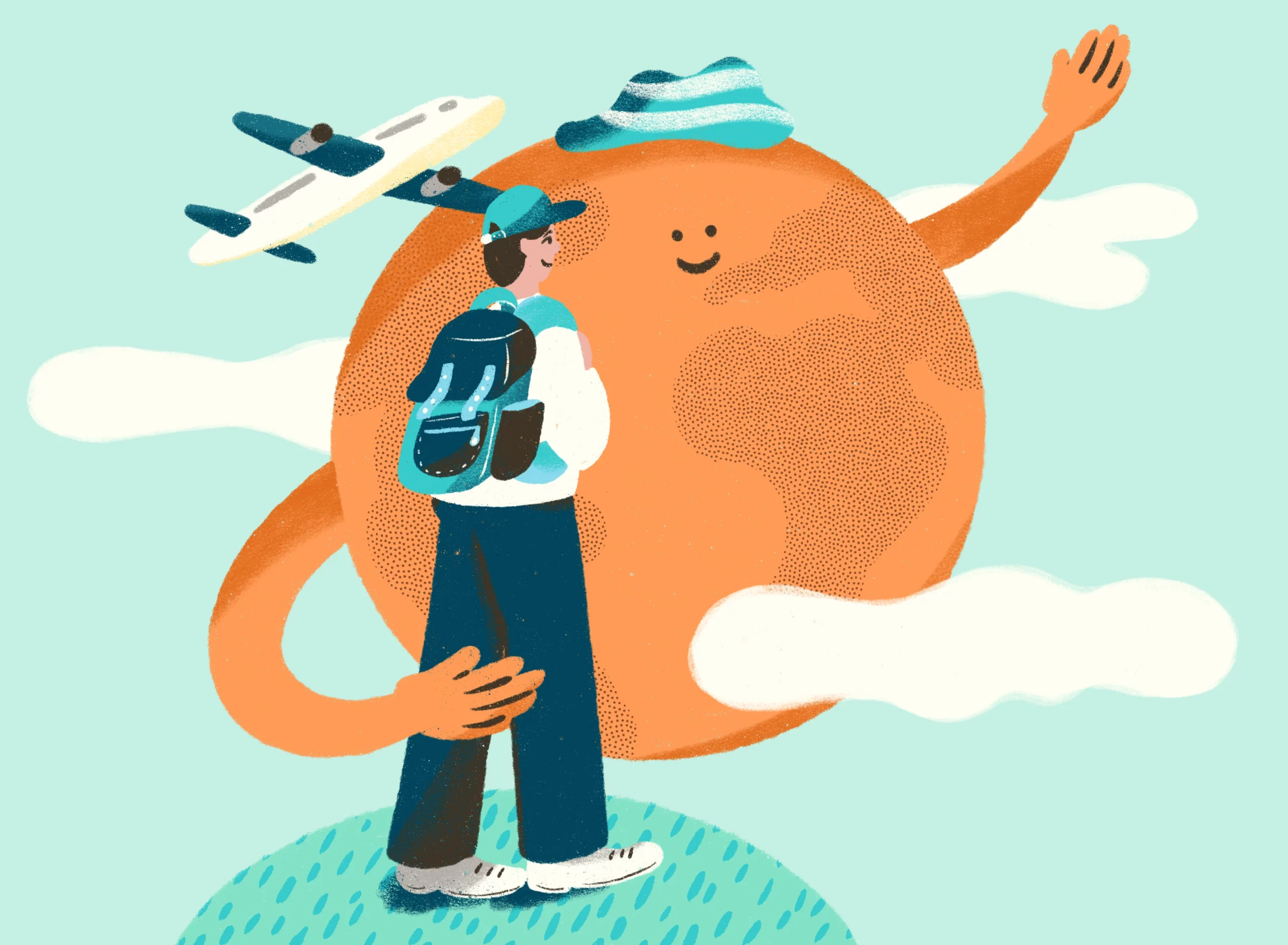
Can you recall the situation three years ago when HongKongers were still the world's most prolific travelers? Following the ease of COVID curbs on inbound travel, HongKongers are ready to revive the rhythm of travel and rejuvenate the mind and body through different mind-expanding exploration.
Reminiscing I was once in Amsterdam on my way to the Efteling theme park, listening to "The Meaning of Travel" by a Taiwanese singer Cheer Chen and drifting into deep sleep on the train. At that time, I couldn't figure out the meaning of travel. All I knew was that travel is so much more than just happiness, and people we met on the journey do not necessarily show kindness as it takes all sorts to make a world. However, I always keep the faith that no matter what, I travel therefore I am- these journeys would eventually become part of my story.
After all these years, the world has changed its order and the preciousness of travel has made its appearance again. Before we hit the road again, perhaps it's time to rethink the meaning of travel.
What good does travel do to our mental health?
How can travel facilitate self-care and empowerment?
We will explore the meaning of travel from a psychological perspective here.
Empowerment through travel
Power dynamics in relationships is a topic of everyday city life. Whether it's at work, within family or a romantic relationship, power dynamics is subtly bringing up changes in all kinds of relationships. However, when we go on a trip, the power game dwindles. In the planning process or during the trip, the decision-making power flows back to us. We make our own plans and become the "big boss" of the trip. We call this "empowerment".
In psychology, empowerment refers to an “intrinsic task motivation reflecting a sense of self-control in relation to one's work and an active engagement with one's work role.’’ Travel enables travelers to make plans and decisions, to set travel goals, thereby achieving self-empowerment.
It is worth noting that the circulation of internet information further strengthens travelers' sense of empowerment. Whether it's YouTube videos, Instagram or Facebook travelogues, or even Netflix documentaries like the Street Food Collection and Down to Earth with Zac Efron, these user-generated content provide a huge amount of clear and informative resources that allow travelers to design their own itineraries, bypassing tourist traps and empowering them to gain greater control of the planning process. It not only enhances the traveler's autonomy, but also their problem-solving skills and self-efficacy – one’s confidence and belief in performing certain tasks and actions during the trip.
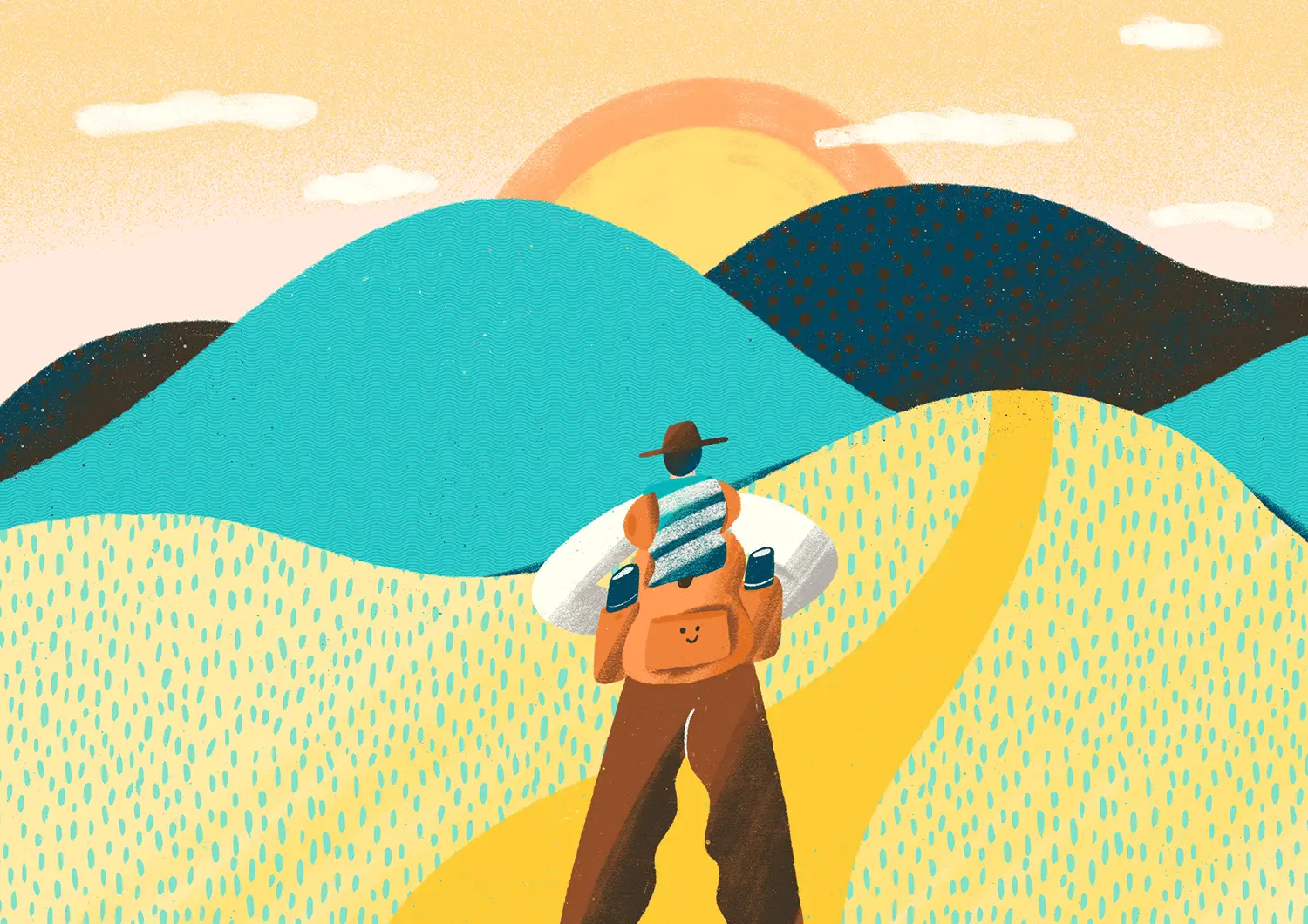
Serendipity: The unexpected joyful encounters
In Eat, Pray, Love, there is an Italian expression "Bel far niente", which means "the beauty of doing nothing". Bel far niente may be some travelers’ motto while some may prefer setting schedules for their adventures as much as possible.
Different travelers may have various preferences on how they travel, but the common ground is that one can always come across some unintentionally coincidental pleasant situations during the trip- something hidden, never seen, never heard, unusual, and unexpected during travel. Over time, the term "serendipity" was coined.
This unpredictability can even reduce the hedonic adaptation that usually happens in daily life. Hedonic adaptation describes how humans become habituated to new stimuli, and quickly readjust to an emotional baseline, that we can get used to both pleasant and unpleasant emotions. If we want to feel the same level of pleasure, the emotion we need to reach may need to be more intense than the last time to feel its effects. This never-ending cycle is also known as "hedonic treadmill".
A Korean study investigated the life satisfaction of more than 200 travelers and found that their life satisfaction measured 15 days before travel had risen and lasted for about one month after travel. In addition to anticipatory joy that comes with planning a trip, it is also believed that "serendipity" and "savoring", the ability to consciously enjoy the positive emotions of the present moment and enhance positive experiences in life, play a role in prolonging happiness.
Another reminiscence of my travel memories - I once visited Freetown Christiania, a self-proclaimed autonomous anarchist commune in Copenhagen, with fellow Airbnb travelers. The area is home to numerous artists, musicians, homeless people, drug users and other socially marginalized individuals. It was an eye-opening experience to see people trading with masked drug dealers, sitting on the floor smoking weed, and Greenlanders sleeping in squatters' attics. Walking around the Freetown was like entering a state of flow - a state of mind where we were thoroughly engaged in our travel experience and didn't notice the passage of time. That bizarre, bonafide night is still fresh in my mind.
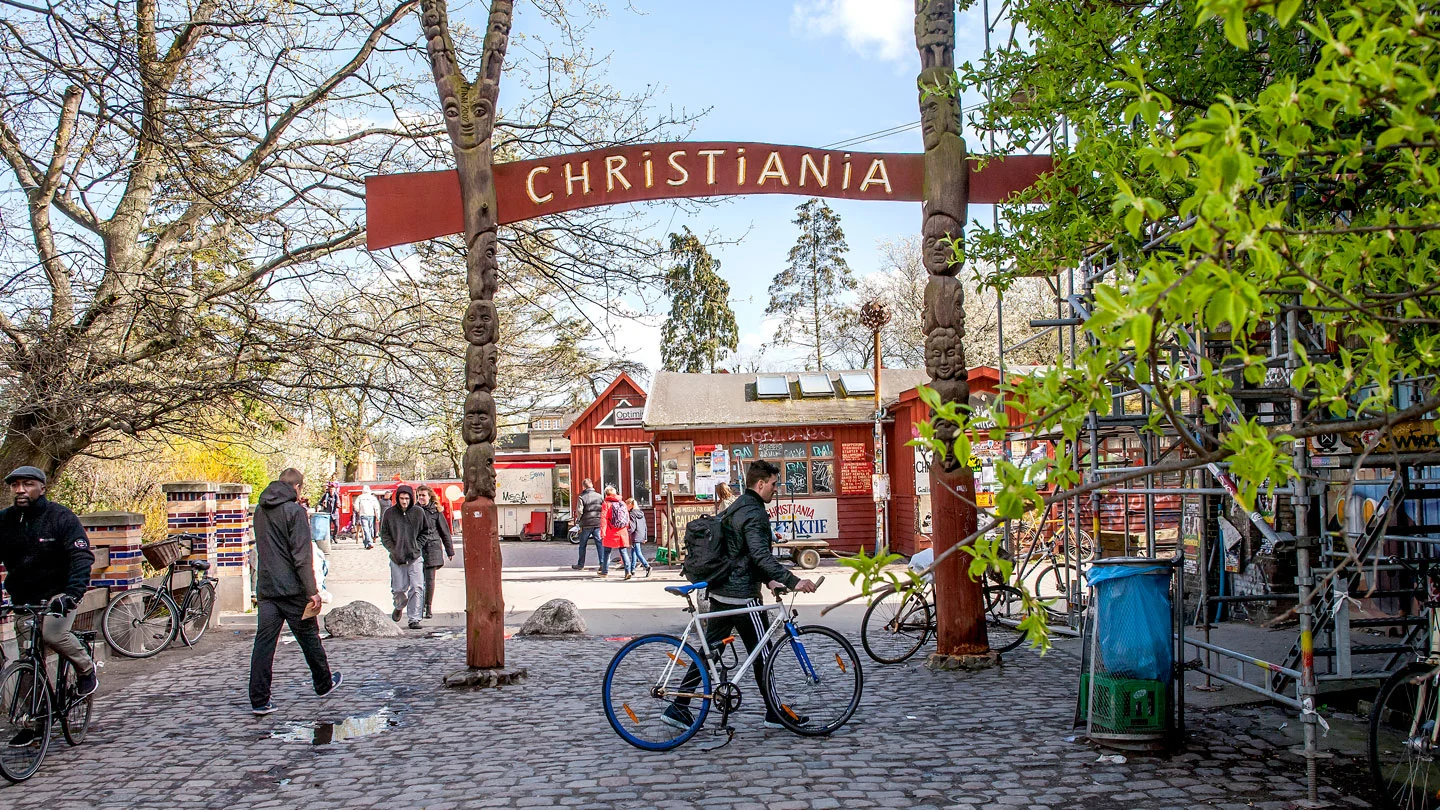
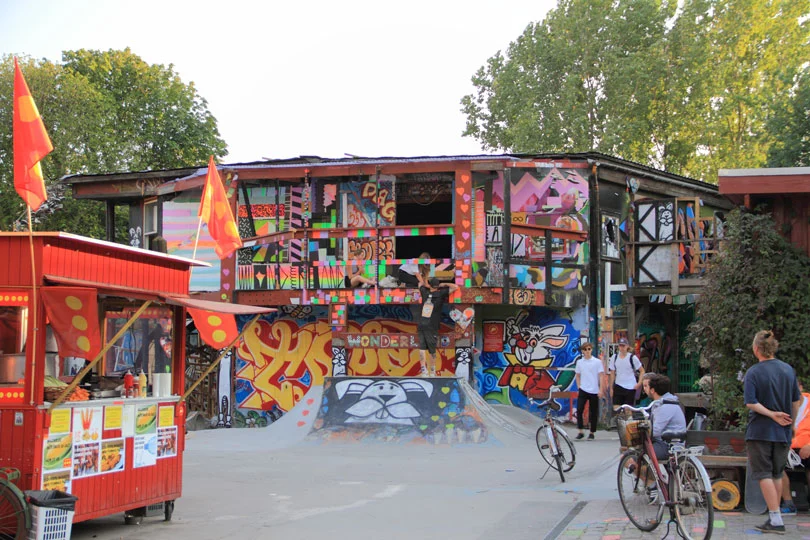
(Freetown Christiania in daytime. Source: Contiki)
In fact, studies suggested that experiential purchases such as traveling, visiting theme parks, and taking yoga classes derive greater satisfaction than material purchases such as buying clothes and bags. Experiential purchases are more likely to help build one's identity and self-image as well as to enhance social relations more readily and effectively than material goods. Also, experiential purchases are evaluated more on travelers’ own terms and evoke fewer social comparisons.
The meaning of travel: sparks of curiosity
The journal Nature Neuroscience studied 132 people in New York City and Miami for three to four months prior to the pandemic in order to understand how diversity in humans' daily experiences is associated with more positive emotional states. In addition to measuring their depression and anxiety levels, participants were asked to install a geolocation-tracking app on their smartphones and respond to questionnaires about their moods via text messages throughout the study.
Researchers found that participants tended have more positive emotions, such as happiness, excitement and relaxation when they visited a variety of places in a day and spent roughly equal proportions of time in those destinations. The MRI scans of some participants showed that novelty and diversity in daily experiences activates their striatum, the part of the brain that processes novelty and rewards. The study further pointed out higher diversity in daily experiences and environmental enrichment (increase cognitive and sensatory stimulation in the environment) is linked to enhanced happiness.
Indeed, visiting a new and unfamiliar place can take us out of our habitual routines and thoughts, learning to manage situations in a different way, and adjust the gap between expectations and realities. As Mark Twain wrote, “Travel is fatal to prejudice, bigotry, and narrow-mindedness.” It introduces us to new customs, cultures and truths about the world, helping to revive our curiosity and open-mindedness, boosting our well-being hormones.
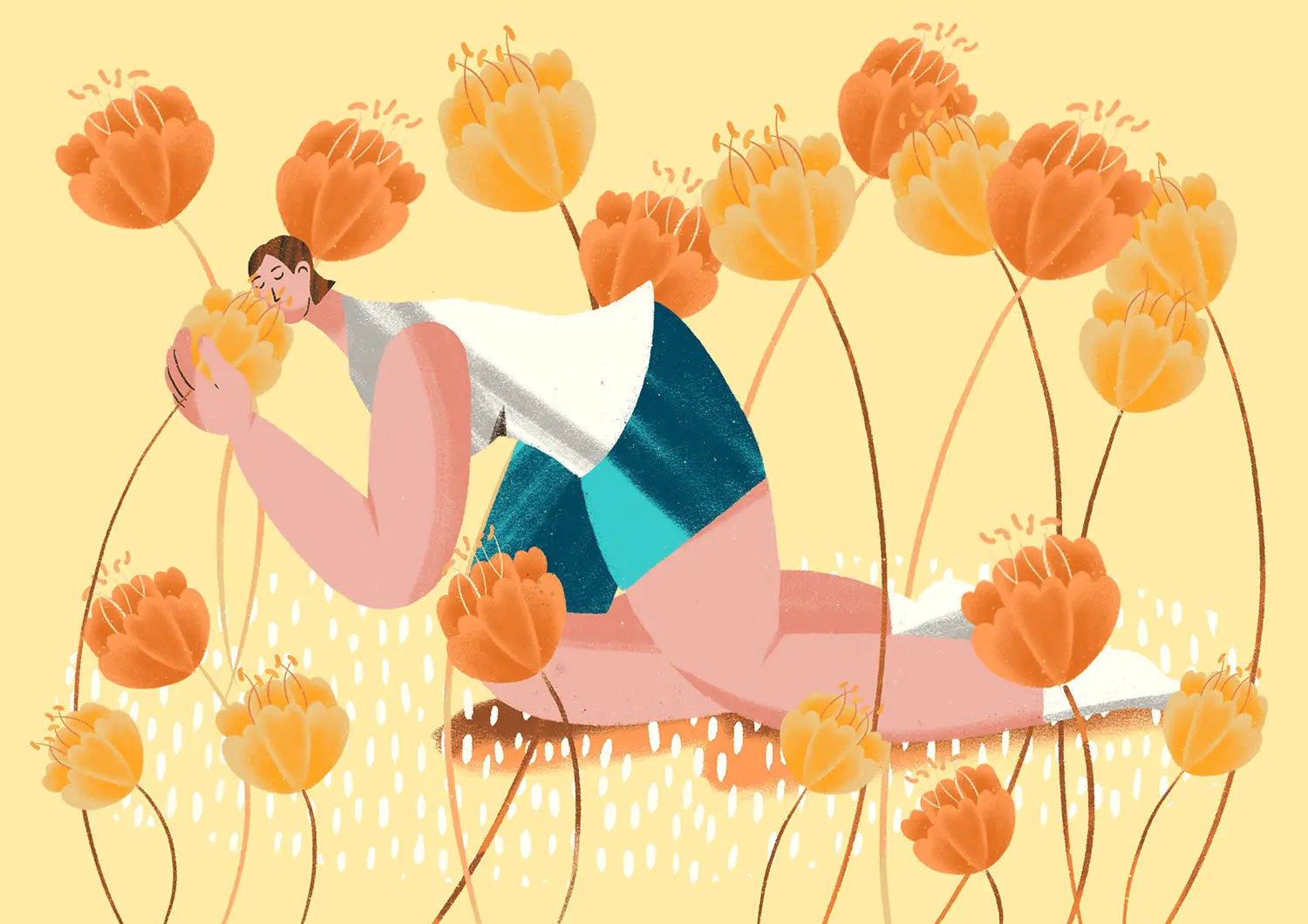
By now, you may be wondering, "Yes right. So, when is my turn to travel?’’ It is true that travel serves as an enchanting form of self-care. But if we can apply the spirit of travel in our daily lives, every day can be an adventure. According to the above-mentioned study, even small changes that introduce greater variability into our physical or mental routine, such as exercising at home, taking a walk around the neighborhood, or taking a new route to the grocery store, may potentially yield similar beneficial effects.
We can bring this curiosity to our daily lives by arranging a few things outside of our daily or weekly schedules, such as taking a new route to work, discovering a new restaurant for lunch on the weekend, watching a new book/film. By developing curiosity in everyday life, you can make each day a fascinating, fulfilling journey.
As Ralph Waldo Emerson said, ‘‘Though we travel the world over to find the beautiful, we must carry it with us or we find it not.’’ Let us be curious about our world, our society, and ourselves, encounter with and embrace the unknown.
References:
Mendes-Filho, Luiz & Mills, Annette & Tan, Felix & Milne, Simon. (2018). Empowering the traveler: an examination of the impact of user-generated content on travel planning. Journal of Travel & Tourism Marketing. 35. 425-436. 10.1080/10548408.2017.1358237.
Kwon, Jangwook & Lee, Hoon. (2020). Why travel prolongs happiness: Longitudinal analysis using a latent growth model. Tourism Management. 76. 103944. 10.1016/j.tourman.2019.06.019.
Heller, A. S., Shi, T. C., Ezie, C., Reneau, T. R., Baez, L. M., Gibbons, C. J., & Hartley, C. A. (2020). Association between real-world experiential diversity and positive affect relates to hippocampal-striatal functional connectivity. Nature neuroscience, 23(7), 800–804. https://doi.org/10.1038/s41593-020-0636-4
Gilovich, T., Kumar, A., & Jampol, L. (2015). A wonderful life: Experiential consumption and the pursuit of happiness. Journal of Consumer Psychology, 25(1), 152–165. https://doi.org/10.1016/j.jcps.2014.08.004
Edith Cowan University. (2022, June 23). 'Travel therapy': Could holidays help mental health and wellbeing?. ScienceDaily. Retrieved December 1, 2022 from www.sciencedaily.com/releases/2022/06/220623091229.htm
Travel And Exploration Spark Happiness, Study Suggests.
Tourism as a dementia treatment based on positive psychology. https://www.sciencedirect.com/science/article/abs/pii/S0261517722000693

